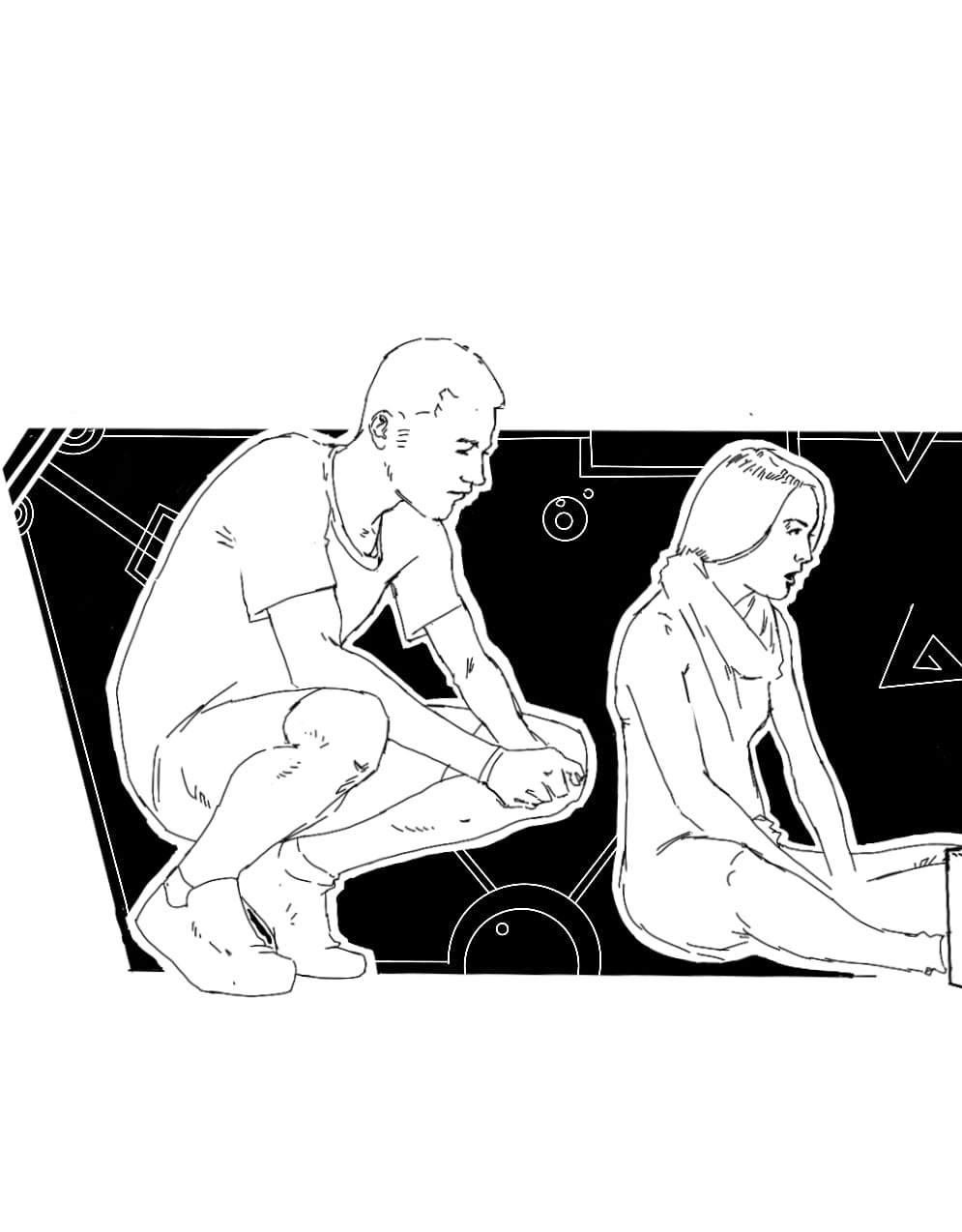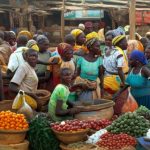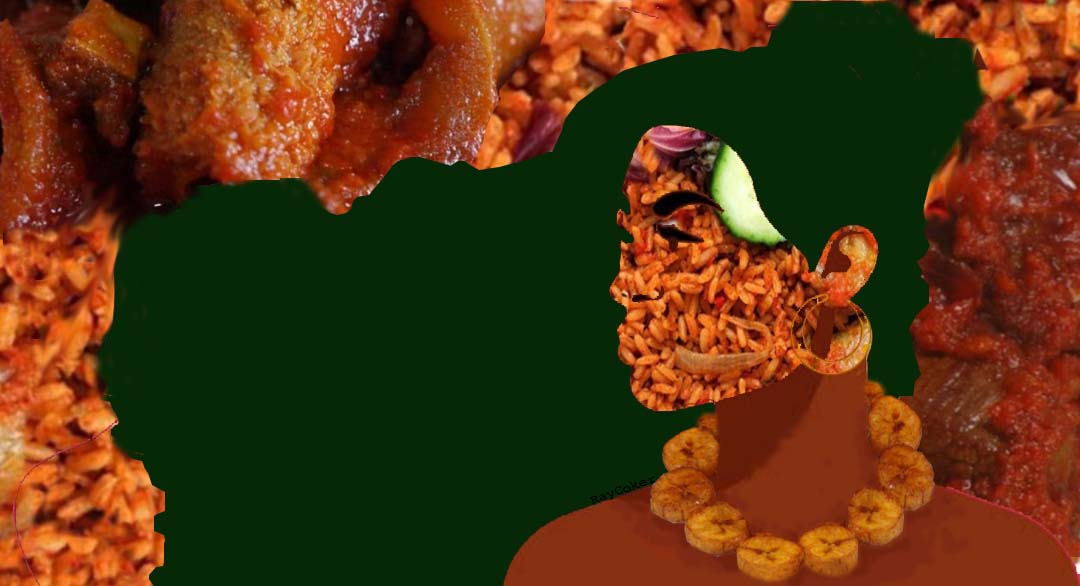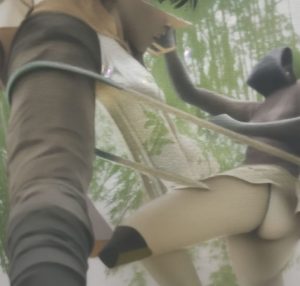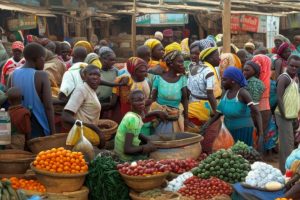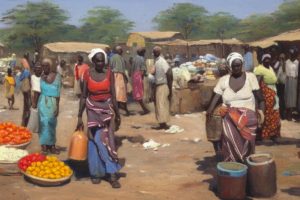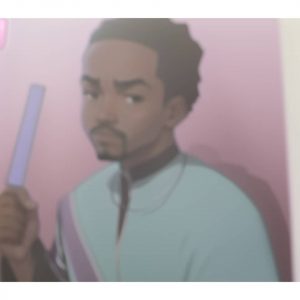
ODEDA VILLAGE; Credit: Black Campus Magazine/Adetunji Faleye.
The midday sun cast long shadows over Odeda, a closely-knit community with tension brewing between the Agbabiaka brothers. Aboderin, the elder, hung to tradition, his fierce look and strong hands gripping the ancestral spear as he surveyed the land his father bequeathed.
Adamo, the younger, stood firm and opposite, his gaze fixed on the distant land, dreaming of irrigation systems and modern tractors- A land to use for the cultivation of food items. Both saw Odeda differently, both yearned for its future, but their visions clashed like thunderstorms during the rainy season.
The first blow fell not during harvest but at a village gathering. A heated exchange over land rights escalated, fueled by simmering resentments and whispered accusations. Adamo, ever the strategist, questioned Aboderin’s leadership, his words full of ambition.
Aboderin, the protector, saw his family’s legacy challenged, his response swift and fueled by pride. A shove, a misplaced hand, and a knife flashed in the dim light. Blood stained the sand, the first drop in a clash to come.
Years blurred into a bloody tapestry. Sons, bound by duty, fought fathers. Cousins, raised as brothers, became bitter rivals. The once bountiful fields lay fallow, scorched by the fires of hatred.
Grief became a constant companion, echoing in the mournful dirges sung by widows and mothers. The Agbabiaka’s name, once revered, became synonymous with sorrow, a chilling reminder of the land’s curse.
Yet, amidst the ashes, a glimmer of hope remained. A young girl, Agbabiaka’s granddaughter, named Falilatu, refused to be consumed by the cycle of vengeance.
She roamed the land, not with a weapon, but with a seed pouch, planting life where death had reigned. Her innocence, a stark contrast to the bitterness around her, served as a silent rebuke.
One hot afternoon, under the ancient baobab tree, Agbabiaka, the matriarch, gathered the fractured remnants of her family. Her voice, faints with age but strong with conviction, pierced the silence.
She spoke of Baba Agbabiaka, of the laughter that once filled the land, of the love that had been buried under layers of hate. Her words, seasoned with grief and wisdom, resonated in their hearts, shame etching lines on their weathered faces.
Tears, long held back, finally flowed, cleansing the air thick with regret. In that shared grief, a fragile seed of understanding germinated.
Aboderin, his spear lowered, saw Adamo not as a rival, but as a brother burdened by the same grief. Adamo’s eyes dimmed with remorse and saw Agbabiaka not as an obstacle, but as a guardian of their shared heritage.
The path to reconciliation was arduous. Ghosts of the past lingered, accusations lingered on lips, and forgiveness felt like a distant mirage. Yet, Falilatu’s relentless hope fueled their efforts. They rebuilt, not just the land, but the bonds between them.
Agbabiaka, drawing on tradition, taught them sustainable farming techniques. Adamo, with his modern knowledge, secured resources and equipment. Falilatu, the symbol of their unity, taught them the forgotten joy of laughter and shared meals.
Years passed, marked by sweat and sacrifice. The once barren land flourished anew, fields brimming with life mirroring the renewed spirit of the Agbabiaka family. Odeda, the land of “Life Water,” once stained with blood, became a testament to their resilience, a beacon of hope for future generations.
Their story, whispered not with fear, but with respect, served as a great reminder that even the deepest wounds can heal, and that forgiveness, like the life-giving water of Odeda, can nourish even the most barren of hearts.
The legacy of the Agbabiaka family, once marred by conflict, became a testament to the enduring power of unity in the face of division, a tale woven into the very fabric of their land, forever etched in the red dust under the shadow of the baobab tree.
What’s your impression of this short story?


